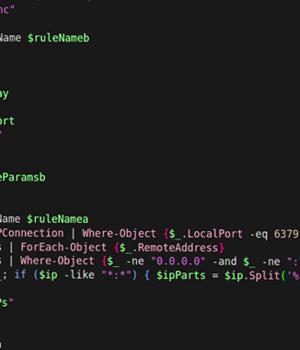Security News > 2023 > July > New P2PInfect Worm Targeting Redis Servers on Linux and Windows Systems

Cybersecurity researchers have uncovered a new cloud targeting, peer-to-peer worm called P2PInfect that targets vulnerable Redis instances for follow-on exploitation.
"P2PInfect exploits Redis servers running on both Linux and Windows Operating Systems making it more scalable and potent than other worms," Palo Alto Networks Unit 42 researchers William Gamazo and Nathaniel Quist said.
A notable characteristic of the worm is its ability to infects vulnerable Redis instances by exploiting a critical Lua sandbox escape vulnerability, CVE-2022-0543, which has been previously exploited to deliver multiple malware families such as Muhstik, Redigo, and HeadCrab over the past year.
"The infected instance then joins the P2P network to provide access to the other payloads to future compromised Redis instances," the researchers said.
What's more, the Windows flavor of P2PInfect incorporates a Monitor component to self-update and launch the new version.
"The P2PInfect worm appears to be well designed with several modern development choices," the researchers said.
News URL
https://thehackernews.com/2023/07/new-p2pinfect-worm-targeting-redis.html
Related news
- Outlaw Group Uses SSH Brute-Force to Deploy Cryptojacking Malware on Linux Servers (source)
- Microsoft fixes auth issues on Windows Server, Windows 11 24H2 (source)
- Microsoft: Windows Server 2025 restarts break connectivity on some DCs (source)
- New BPFDoor Controller Enables Stealthy Lateral Movement in Linux Server Attacks (source)
- New Windows Server emergency updates fix container launch issue (source)
- Microsoft fixes Windows Server 2025 blue screen, install issues (source)
- Microsoft pitches pay-to-patch reboot reduction subscription for Windows Server 2025 (source)
- Microsoft: Windows Server hotpatching to require subscription (source)
- Microsoft: April updates cause Windows Server auth issues (source)
- Microsoft fixes Linux boot issues on dual-boot Windows systems (source)
Related Vulnerability
| DATE | CVE | VULNERABILITY TITLE | RISK |
|---|---|---|---|
| 2022-02-18 | CVE-2022-0543 | Missing Authorization vulnerability in Redis It was discovered, that redis, a persistent key-value database, due to a packaging issue, is prone to a (Debian-specific) Lua sandbox escape, which could result in remote code execution. | 10.0 |